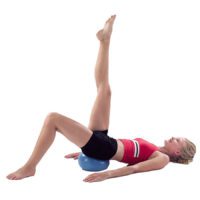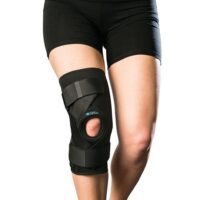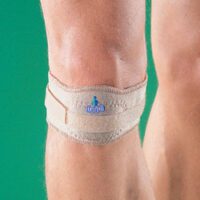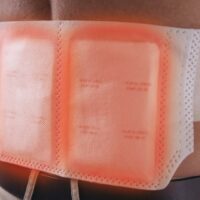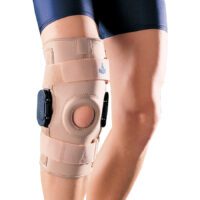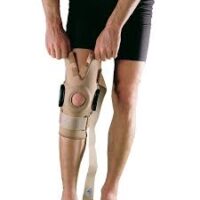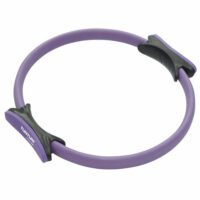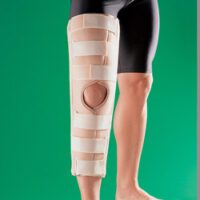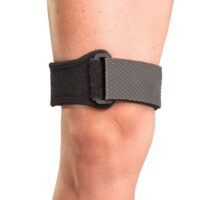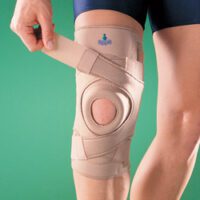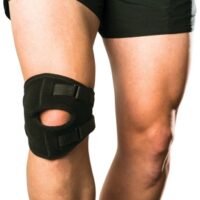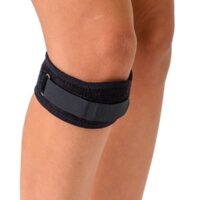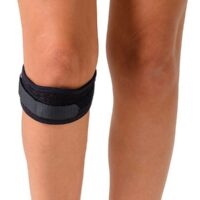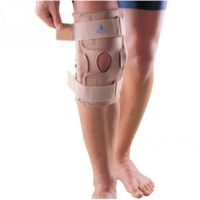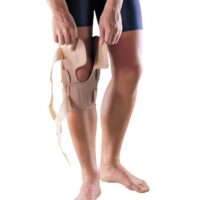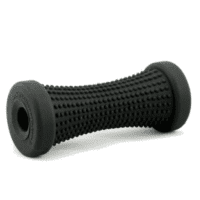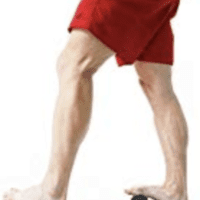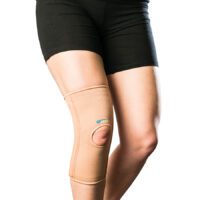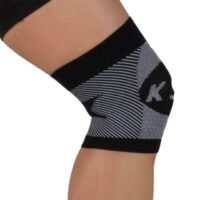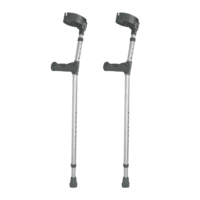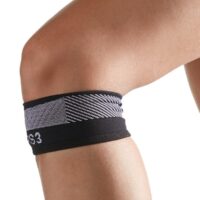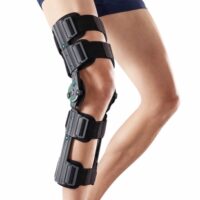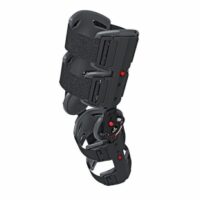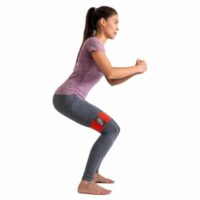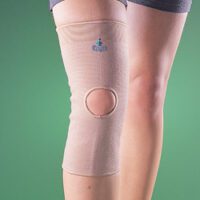Fat Pad Syndrome
Article by John Miller

Fat Pad Syndrome
What is Fat Pad Syndrome?
Fat Pad Syndrome, commonly known as Hoffa’s Syndrome or Fat Pad Impingement, represents a painful knee condition. This condition stems from the irritation of the Hoffa’s fat pad, a protective layer of fatty tissue beneath the kneecap (patella). It acts as a cushion for the knee joint, absorbing shocks and impacts.
Identifying the Causes
Trauma, such as a direct blow to the knee from a fall or a car accident, often sparks Hoffa’s Syndrome. Sports injuries, particularly in football, can also provoke this condition. Contributing factors include tight quadriceps muscles, overextension of the knee, patella misalignment, pelvic tilt, osteoarthritis, and post-surgical scarring.
Recognising the Symptoms
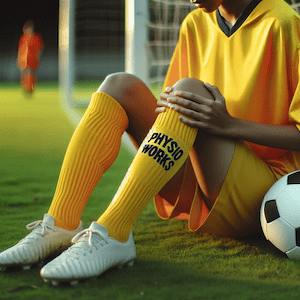
Pain beneath the kneecap characterises the condition, often worsening with straightening of the knee or during repetitive movements like walking or squatting. Swelling around the joint and discomfort when wearing high heels are also tell-tale signs.
Diagnosing the Condition
Physiotherapists and sports doctors diagnose Hoffa’s Syndrome by examining the knee for tenderness and inflammation. The Hoffa’s test, where pain is elicited during quadriceps contraction, is a clinical tool used. An MRI may assist in confirming fat pad inflammation.
Effective Treatment Approaches
Treatment involves a custom physiotherapy plan focusing on pain management, mobility enhancement, muscle strengthening, and kneecap alignment. Fat pad de-loading techniques are useful. Lower limb biomechanics should always be addressed to prevent a recurrence, especially if the onset is insidious rather then traumatic.
Most fat pad syndrome sufferers respond positively to non-surgical and non-chemical treatment options. However, if the conservative methods don’t yield results, injection-therapy or surgery might be an option.
Preventing Fat Pad Syndrome
Preventative measures include strengthening exercises for the muscles around the knee, ankle, and hip, and avoiding excessive pressure on the knees. Supportive footwear and weight management can also reduce the risk.
Conclusion
Hoffa’s Syndrome can limit activities, but with proper care, its impact can be minimised. If knee discomfort arises, consulting a healthcare professional is critical for recovery and continued knee health. Remember, prevention is pivotal for the successful management of fat pad syndrome, so look after your knees and seek advice if you’re concerned.
Rochedale - Call 38410277
Book Online: RochedaleSalisbury - Call 32751044
Book Online: SalisburySandgate - Call 32691122
Book Online: SandgateRelated Articles
- Patella Tendinopathy: Explores the causes, symptoms, and treatment options for patella tendinopathy, a condition affecting the tendon connecting the kneecap to the shinbone.
- Patellofemoral Pain Syndrome: Discusses this common knee problem, focusing on pain around the kneecap and its management.
- Chondromalacia Patella: Provides insights into this condition characterised by softening and breakdown of the cartilage on the underside of the kneecap.
- Osgood-Schlatter Disease: Offers information on this knee condition commonly seen in growing adolescents, including symptoms and treatment.
- Sinding-Larsen-Johansson Syndrome: Discusses this knee condition affecting young athletes, characterised by pain at the bottom of the kneecap.
- Knee Bursitis: Explains the inflammation of the bursa located near the knee joint, its causes, symptoms, and treatment.
- ACL Injuries: Covers the causes, symptoms, and rehabilitation of anterior cruciate ligament injuries in the knee.
- Runner’s Knee: Provides an overview of this common issue among runners, focusing on causes, symptoms, and preventive strategies.
- Common Knee Injuries in Sports: Discusses injuries prevalent in sports that impact the knee.
- Physiotherapy Techniques for Knee Pain: Details different physiotherapy methods to alleviate knee pain.
- Understanding Osteoarthritis of the Knee: Provides information on osteoarthritis and its effects on the knee.
- Post-Surgery Knee Care: Guidance on knee care after surgical procedures.



